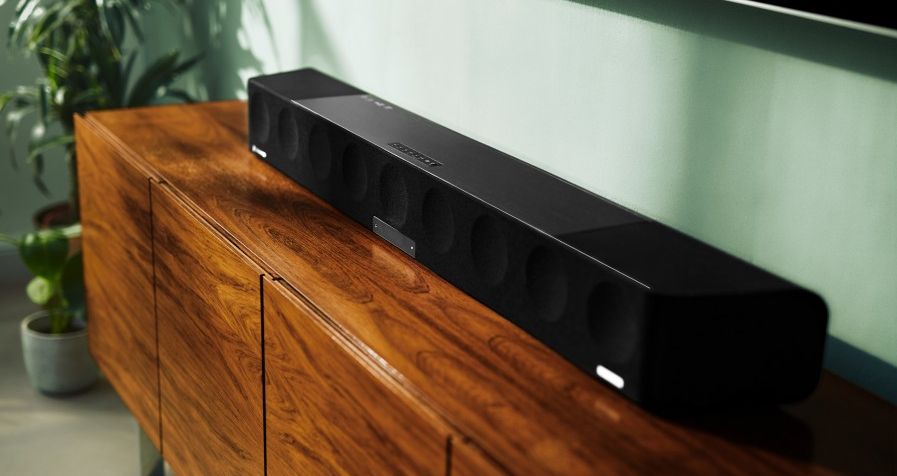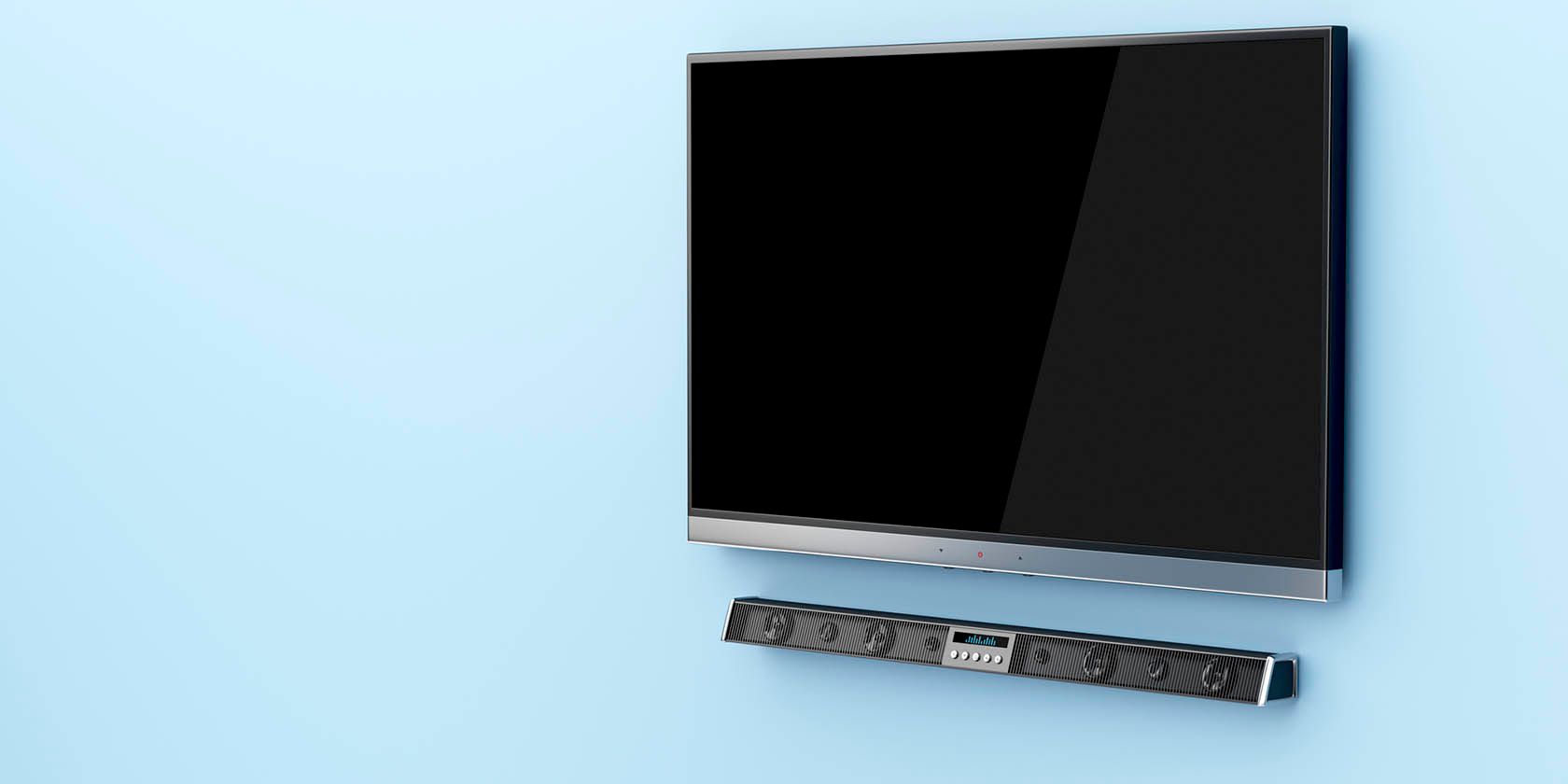If you’re not happy with the audio offered by your television, you have a choice between a set of speakers and a soundbar. Soundbars are increasingly popular because along with being cheaper, they provide a more stylish appearance.
Soundbars are easier to buy than a set of speakers because there aren’t as many options. But if you’re new to audio equipment, it can still be more complicated than you might like. So what exactly is a soundbar and what should you look for when buying one?
What Is a Soundbar?

A soundbar is a loudspeaker that’s typically rectangular in shape and has multiple small speakers built into it. They are designed to be installed immediately below a television or other display device. Soundbars vary widely in terms of sound quality and the more you spend, the better the audio experience. They don’t offer actual surround sound, but they do broadcast audio further around a room than a television. They are typically designed to act independently, but you can also purchase soundbars with a separate subwoofer that you can place nearby.
How to Buy a Soundbar: Eight Features to Compare

Soundbars all look similar, but there are important differences between models. If you’d like to buy a soundbar, here are eight features that you should consider.
1. Subwoofer
A subwoofer is a loudspeaker that is responsible for low audio frequencies, often referred to as bass. Most soundbars don’t have a specific subwoofer, but you will find some with them either built-in or as an additional speaker.
- Soundbars without subwoofers are often cheaper. The difference in audio quality, however, is often noticeable.
- A soundbar with a built-in subwoofer is ideal if you want all of your audio to come from a single device. Built-in subwoofers also offer comparable performance to separate models.
- A soundbar with a separate subwoofer is useful if you want to experiment with placement and don’t mind having another speaker in the room. It’s worth noting that subwoofers are often wireless and therefore easy to hide.
2. Connectivity
Most soundbars are designed to connect to a television using an HDMI cable. You simply connect your input devices to your television and then connect your television to the soundbar. Soundbars can also be connected to a television using an optical cable. If you’d like to plug devices directly into the soundbar, this is also possible but you need a soundbar with additional HDMI ports. This is useful if your television doesn’t have many input ports itself.
3. Wi-Fi and Bluetooth
Many soundbars also offer wireless connectivity. This is important if you want to be able to play music directly from your phone or computer. This can be achieved using either Bluetooth or Wi-Fi.
Bluetooth is sufficient for most purposes but it requires you to be within a range of approximately 30 feet. Depending on the size of your house, Wi-Fi may therefore be more convenient. Wi-Fi also allows you to listen to music in multiple rooms at the same time.
4. Channels
You might have noticed that all soundbars have a certain number of channels. This basically refers to how many speakers there are. A soundbar with two channels should still sound better than your television but ideally, you should be opting for more.
- Two Channels: This is a soundbar with two speakers, left and right.
- Three Channels: This is a soundbar with three speakers, left, right, and center.
- Five Channels: This is a soundbar with five speakers, left, right, center, and two rear speakers.
- Seven Channels: This is a soundbar with seven speakers. It’s the same as a five-channel soundbar, but the two rear channels are split in two so that you have four channels instead.
Some soundbars are described using three numbers. When there’s more than one number, the first number refers to the number of channels, the second refers to whether or not there’s a subwoofer, and the third is the number of upward-facing speakers.
5. Active or Passive
Most soundbars are active soundbars. This means that they have a built-in amplifier and can work independently without any other audio equipment. Active soundbars are more popular because you don’t need to buy anything else or add any more wires.
Passive soundbars, however, are also widely available. A passive soundbar doesn’t have an amplifier. Therefore, you need to add an amplifier or a receiver. The advantage of passive soundbars is that they often have better speakers, and you have more control about what you connect them to.
6. Dimensions
Soundbars are available in a variety of different lengths. A soundbar doesn’t need to match the length of your television, but you probably don’t want one that’s longer than it. You should also consider the amount of space beneath your television. If your television isn’t wall-mounted, your new soundbar needs to be short enough not to block the screen.
7. Remote or App
Most soundbars come with remote controls, but many can also be controlled by your television remote. This is useful if you already have more remote controls than you want. Many soundbars also have apps that allow you to control them using your phone.
8. Voice Assistant
Some soundbars include voice assistants such as Alexa or Google Assistant. This is useful if you’d like to control the soundbar by talking to it or use it to control other parts of your home, such as smart lights. It’s worth noting that voice assistants do arrive with privacy concerns. If you buy a soundbar with this functionality, you are essentially installing a microphone that’s designed to listen to what you say.
You Don’t Need to Spend a Lot

A soundbar is an ideal option if you want a higher quality sound without spending a large amount of money. Despite their slim, minimal appearance, they can significantly improve the audio on almost any television.
If you’re not sure which one to buy, it’s worth setting a budget and then shopping from a reputable brand. Soundbars sound better the more you are willing to spend, but even a hundred-dollar soundbar can provide a surprisingly good sound.
Read Next
About The Author